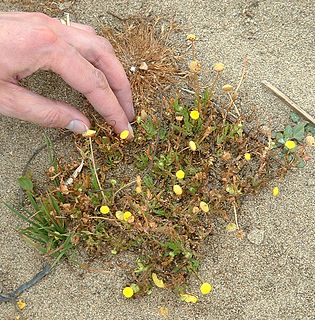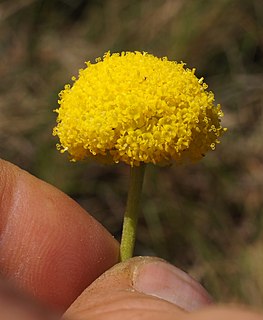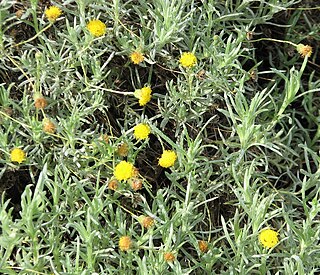
In modern clothing and fashion design, a button is a small fastener, now most commonly made of plastic, but also frequently made of metal, wood or seashell, which secures two pieces of fabric together. In archaeology, a button can be a significant artifact. In the applied arts and in craft, a button can be an example of folk art, studio craft, or even a miniature work of art.
A radio button or option button is a graphical control element that allows the user to choose only one of a predefined set of mutually exclusive options. The singular property of a radio button makes it distinct from a checkbox, which allows more than one item to be selected and for the unselected state to be restored.

Red Buttons was an American actor and comedian. He won an Oscar and a Golden Globe for his supporting role in the 1957 film Sayonara.

A gamepad, joypad, or simply controller is a type of game controller held in two hands, where the fingers are used to provide input. They are typically the main input device for video game consoles.
A button is a small fastener which secures two pieces of fabric together.

A push-button or simply button is a simple switch mechanism for controlling some aspect of a machine or a process. Buttons are typically made out of hard material, usually plastic or metal. The surface is usually flat or shaped to accommodate the human finger or hand, so as to be easily depressed or pushed. Buttons are most often biased switches, although many un-biased buttons still require a spring to return to their un-pushed state.
Terms for the "pushing" of a button include pressing, depressing, mashing, slapping, hitting, and punching.
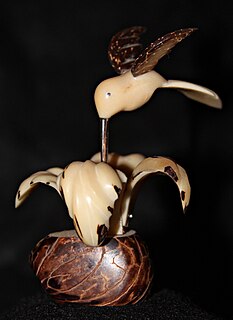
Vegetable ivory or tagua nut is a product made from the very hard white endosperm of the seeds of certain palm trees. Vegetable ivory is named for its resemblance to animal ivory. Species in the genus Phytelephas, native to South America, are the most important sources of vegetable ivory. The seeds of the Caroline ivory-nut palm from the Caroline Islands, natangura palm from Solomon Islands and Vanuatu, and the real fan palm, from Sub-Saharan Africa, are also used to produce vegetable ivory.

Whip Inflation Now (WIN) was a 1974 attempt to spur a grassroots movement to combat inflation in the US, by encouraging personal savings and disciplined spending habits in combination with public measures, urged by U.S. President Gerald Ford. The campaign was later described as "one of the biggest government public relations blunders ever".
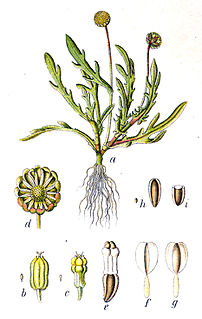
The small marsh flower Cotula coronopifolia bears the common names brass buttons, golden buttons, and buttonweed. The flower heads are bright yellow discoid heads that look like thick buttons. Individual plants spread stems along the ground and send up the knobby flowers at intervals. The plant is native to southern Africa, but it has been introduced to other parts of the world.

"Buttons" is a song by American girl group the Pussycat Dolls from their debut studio album PCD (2005). It was written by Sean Garrett, Jamal Jones, Jason Perry and Nicole Scherzinger and produced by the former two alongside Ron Fair, Tal Herzberg and Young Smoke. It was remixed with additional vocals from American rapper Snoop Dogg and was released as a digital download on April 11, 2006 as the album's fourth single. "Buttons" contains elements of Middle Eastern music, while the song's lyrics speaks of a woman's desire to be undressed.
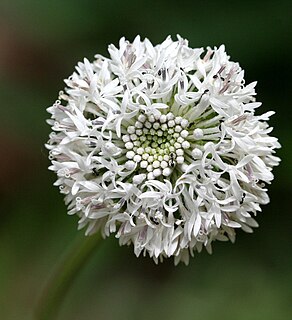
Marshallia is a genus of plants in the sunflower tribe within the daisy family.

Chrysocephalum, known by the common name everlastings for their long life as cut flowers, is a genus of flowering plants in the family Asteraceae. There are six species, all of which were formerly classified under other genera.
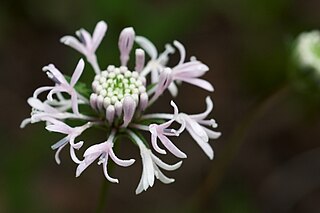
Marshallia mohrii is a perennial herb species, endemic to the Southeastern United States, in several locations in Alabama, Georgia, and Florida. The first recorded discovery of the species was in 1882 by Dr. Charles Mohr, hence the botanical species name and common name.

Cherry Orchard Bog Natural Area Preserve is a 354-acre (143 ha) Natural Area Preserve located in Sussex and Prince George counties, Virginia. It preserves a seepage wetland that supports a large collection of rare plants, including camass, bog-buttons, fringed orchids, and purple pitcher plants. The property is located along the right of way for a power line, receiving acidic, low-nutrient groundwater.

Lophophora williamsii or peyote is a small, spineless cactus with psychoactive alkaloids, particularly mescaline. Peyote is a Spanish word derived from the Nahuatl, or Aztec, peyōtl [ˈpejoːt͡ɬ], meaning "glisten" or "glistening". Other sources translate the Nahuatl word as "Divine Messenger". Peyote is native to Mexico and southwestern Texas. It is found primarily in the Chihuahuan Desert and in the states of Coahuila, Nuevo León, Tamaulipas, and San Luis Potosí among scrub. It flowers from March to May, and sometimes as late as September. The flowers are pink, with thigmotactic anthers.
Leptorhynchos is a genus of annual or perennial herbs in the family Asteraceae. All species are endemic to Australia. These include:

Sphenosciadium is a monotypic genus of flowering plants in the carrot family containing the single species Sphenosciadium capitellatum, which is known by the common names woollyhead parsnip, ranger's buttons, button parsley, and swamp white heads.

Acmella oleracea is a species of flowering herb in the family Asteraceae. Common names include toothache plant, paracress, Sichuan buttons, buzz buttons, tingflowers and electric daisy. Its native distribution is unclear, but it is likely derived from a Brazilian Acmella species. It is grown as an ornamental and attracts fireflies when in bloom. It is used as a medicinal remedy in various parts of the world. A small, erect plant, it grows quickly and bears gold and red inflorescences. It is frost-sensitive but perennial in warmer climates.

A lounge jacket, also called a suit jacket, lounge coat or suit coat, is a jacket in classic menswear that is part of a lounge suit.
